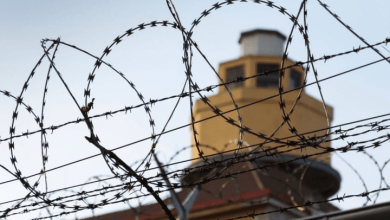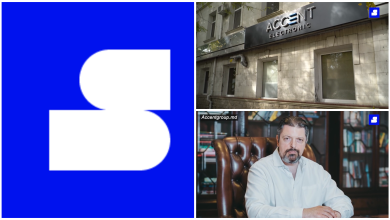The Authorities of Gagauzia Intend to Regulate Online Media Activity Based on a Permissive Act. The Initiative Discussed at Comrat Was Subject to Criticism

The local authorities in Gagauzia intend to establish a tool for conditioning online media activity in the region by issuing an approval (permit), according to the draft law published last week. The document was discussed at the meeting held in Comrat on February 22 and was subject to criticism, whereas non-governmental media organizations demanded to withdraw the legislative initiative immediately.
The set of amendments was approved by the Executive Committee of the ATU of Gagauzia on January 4, but it was not published until February 20. It includes a series of amendments to the 2016 local broadcasting law. According to its authors, the project is aimed at “regulating electronic media activity in the territory of the ATU of Gagauzia by means of licenses and permits,” and its objectives include “controlling activities of the private electronic media; optimizing private electronic media activity; distinction between private and public media; practicing activities based on the Permit.”
More exactly, the local elected officials intend to force online media sources in the region to purchase a so-called activity permit called an “Izin” from the authorities, which is defined as a document issued to “registered businesses” operating in the territory of Gagauzia to confirm their right to produce and to share an “informational complex.” The authorities intend to charge an annual fee for the “Izin,” and in order to receive it, a media outlet would have to coordinate “the general concept of the information complex” with the Executive Committee (the local authority equivalent to the Government), and also to present “to the issuing authority an annual report on implementation of the concept of the information complex during the previous year.”
Among other things, the document also provides that the Supervisory Board of the Gagauziya Radio Televizionu (GRT) is supposed to renounce some of its powers, and the number of its members should be reduced from nine to seven for the reason that “gathering so many people at the same place is complicated,” and the broadcasting time of the GRT channel in the Gagauz language should also be reduced.
On February 22, two days after the document was published, the People’s Assembly of Gagauzia organized public hearings regarding the draft law. The authors of the initiative explained that some amendments were necessary for bringing the local law in compliance with the Code of Audiovisual Media Services of the Republic of Moldova, while the others were necessary because the cable channel operators and GRT representatives were addressing them in order to improve and to optimize some standards.
During the discussions, Svetlana Mironova, head of the Office of the People’s Advocate in Comrat, emphasized the fact that “the project emerged in the public space yesterday, and the public debates have been announced today. Not everyone has had an opportunity to examine it and to draft the recommendations. To make the discussions productive, it is necessary to increase this term and to promote the initiative in as many sources as possible, to make the audience aware of it.” She also listed a number of objections against the draft law. “I was very surprised by one of the objective listed here – controlling private electronic media activities. (…) To what extent is this objective which implies such a control mechanism related to the guarantees of human rights?” Among other things, she also mentioned the fact that neither the People’s Assembly nor the Executive Committee were allowed to control the electronic media or the Internet, and also stated that the criteria according to which the authorities would issue the so-called permits still remained unclear.
“I CAN’T UNDERSTAND WHY IT BOTHERS YOU”
During the discussion, a journalist from the Nokta.md regional portal also asked what “controlling private electronic media activity” exactly meant. “Control is a guarantee of compliance with a regulatory act. If an authority provides its approval, who do you think is supposed to control it? I can’t understand why it bothers you so much. (…) Human rights are not breached here. (…) It’s not about controlling any activities of media outlets or their editorial policy,” Vitalie Dereveanco, the representative of the Executive Committee of the autonomy, answered. As to the tools for issuing future permits and the criteria on the basis of which they would be issued, he mentioned that “all the questions you have asked, including the procedures for obtaining documents, issuing permits, and sanctions will be developed afterwards, in additional provisions.”
The local deputy Alexandru Tarnavschii criticized the suggestions in his speech on February 21. According to him, the suggestion to regulate the procedure for creation and operation of electronic media, as well as the regulation on issuing relevant permits (“basically, a license”) contravenes the legislation of the Republic of Moldova. Tarnavschii suggests “withdrawing the submitted draft law and preparing a legislative initiative for the Parliament of the Republic of Moldova in order to introduce appropriate amendments to the legislation of the Republic of Moldova (…). Considering the specific issues in the field of law regulating the media, an expert opinion from non-profit organizations in the sphere of the media should be obtained.”
“The more specific the suggestions expressed today are, the more correct decisions we will make. Everything will be fine, I guess. Yes, there are some deficiencies, and they have to be corrected, we will correct them,” Dmitrii Constantinov, president of the People’s Assembly of Gagauzia, said. “It is a working document, not an axiom, and it can be amended by all the parties concerned. It is currently being considered by the commissions of the People’s Assembly, where amendments could be introduced,” Vitalie Dereveanco added.
MEDIA NGOs’ REACTION
The media NGOs “vehemently condemned the attempts” of the Executive Committee of the ATU of Gagauzia to hinder journalists’ professional activity by introducing “arbitrary and abusive tools for conditioning online media activity by means of approvals from the local authorities” and demanded to withdraw the legislative initiative without delay. “The provisions of the draft law prepared by the executive authority of Gagauzia go beyond the regulatory object of the ATUG Law on the Audiovisual Sector and flagrantly contravene the Constitution of the Republic of Moldova and the international treaties signed by the Republic of Moldova,” according to the statement published on February 26.



